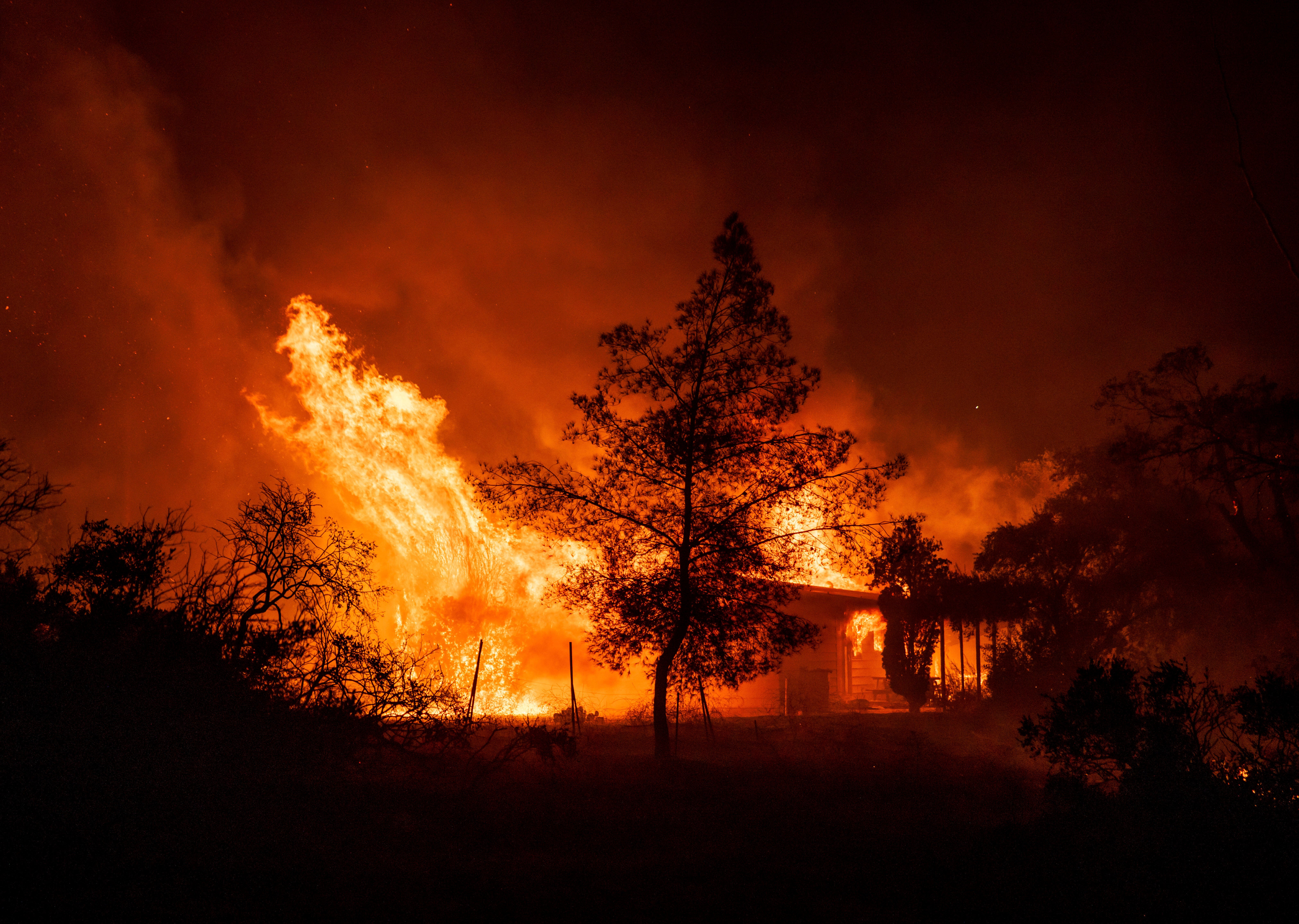Wake up - America’s poorest are suffering most from the climate crisis
Destructive impacts are already in motion


The United States has published its “gold standard” climate report - a major assessment on the climate crisis, required by law, which comes around every five years or so. It involves hundreds of scientists and experts, resulting in a clear - and alarming - insight into how rising global temperatures are impacting America today, and what the future will hold.
Among the findings is one which perhaps feels intuitive, but can no longer be overlooked. While all Americans are being impacted by climate change, it is the “underserved and overburdened” that are being harmed the most.
In other words, heatwaves, wildfires, sea-level rise, violent storms - they all take a higher toll on Black, Brown and Asian communities, Native Americans and the country’s poorest citizens. These heavy burdens are financial, physical, mental, and social, and only add to the historic injustices woven into the fabric of American life.
Climate change will make food less available and more expensive, along with healthcare, insurance and property costs. Public budgets will be stretched as spending increases on disaster relief, leaving less for social welfare programs. Outdoor workers will lose income as hours are curtailed by more dangerously hot days.
Then there’s the destructive impacts that cannot necessarily be counted in dollars and cents. “Quality of life is threatened by climate change in ways that can be more difficult to quantify, such as increased crime and domestic violence, harm to mental health, reduced happiness, and fewer opportunities for outdoor recreation and play,” the National Climate Assessment 5 (NCA-5) warns.
These impacts are already in motion, no matter where you look. The poorest Floridians, with a lack of insurance and savings, have struggled the most to rebuild from the devastation of Hurricane Ian in 2022, placing them more at risk of falling into long-term debt and financial hardship.
The historic racist practice of “redlining” - which barred Black Americans from getting mortgages and buying homes - has left many in neighborhoods more at risk of flooding. African-Americans accounted for half of the death toll when Hurricane Katrina hit New Orleans in 2005. Nearly one in three Black residents never returned to the city after their homes were destroyed.
Phoenix, Arizona, had record heat-related deaths in 2023 after an unprecedented number of days above 100 degrees this summer. The final toll is expected to include a large number of people with little escape from brutal temperatures: homelessness jumped 46 per cent in the city in the past four years, due to a soaring housing market and lasting impacts of the pandemic.
Steps are being taken to address this tangled web of issues. The Biden administration is investing billions to tackle the climate crisis with a mandate that 40 per cent of funding be directed towards programs which fall under the “environmental justice” umbrella.
On the Navajo Nation, for example, tribal members are being trained to work in solar technologies, and expand renewables across communities where many households still lack reliable electricity and drinking water. In a cluster of cities in Massachusetts, health departments have received funding to help those with asthma in places particularly burdened by air pollution and substandard housing.
These are certainly positive developments, but it is not enough. Fighting the climate crisis goes beyond adapting to impacts which we can no longer avoid. It will require the US to take a long, hard look at its wealth inequality, which climate change threatens to turn from a wide gap into a yawning chasm.
While the US has made strides in cutting its domestic carbon footprint, it is the richest Americans who are firmly in the gas-guzzling driving seat. The top 10 per cent of wealthiest households are responsible for more than 40 per cent of total US emissions; the one per cent of richest Americans make up 15-17 percent of that alone.
The climate crisis is, of course, a shared global battle, one where every fraction of a degree rise increases the possibility of unforeseen consequences.
“While there are still uncertainties about how the planet will react to rapid warming and catastrophic future scenarios that cannot be ruled out, the future is largely in human hands,” NCA-5 says.
It’s a fight which America - the country with the largest carbon footprint in history - is showing promising signs that it could lead, benefiting not just the wider world but also those living a few blocks away, in some cases.
But it requires some of America’s elite to pull their heads out of the increasingly hot sand.

Join our commenting forum
Join thought-provoking conversations, follow other Independent readers and see their replies